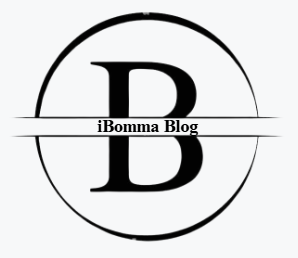Introduction to the New York Times Crossword
Crossword puzzles have long captured the imagination of word lovers and casual puzzlers alike. Among them, the New York Times Crossword stands out as a beacon of challenge and wit. Each day, enthusiasts eagerly await their chance to tackle the latest clues that range from obscure trivia to clever wordplay. One such clue that has puzzled many is “Head of France.” It’s a phrase steeped in history and intrigue, beckoning solvers with its promise of discovery. As you delve into this blog post, we’ll explore what makes this particular clue so fascinating within the vast world of crosswords. Whether you’re a seasoned solver or just starting your puzzle journey, there’s something here for everyone!
History of the Head of France Clue
The “Head of France” clue has a rich background in crossword puzzle lore. It often refers to the iconic phrase, hinting at both historical and cultural figures associated with French leadership.
Traditionally, solvers might think of Charles de Gaulle or even Napoleon Bonaparte when faced with this clue. Their significance resonates through generations, making them popular entries for crossword enthusiasts.
Moreover, this clue taps into the broader theme of French identity. The allure of Parisian culture—artistry, politics, and philosophy—invites puzzlers to dig deeper into their knowledge banks.
As crosswords evolved over decades, clues like these became more than just trivia; they reflect societal changes and interests. Each iteration offers a glimpse into how we view history today while challenging our understanding of language itself.
How to Solve the Head of France Clue
When tackling the “Head of France” clue in the NYT Crossword, start by thinking about prominent figures associated with French leadership. Look for names that resonate with both history and current affairs.
Consider abbreviations or common references often used in puzzles. The clue might not always be straightforward, so keep an open mind to different interpretations.
A quick glance at crossword conventions can help too—think about how clues sometimes use wordplay or synonyms. For instance, “head” could refer to a leader or perhaps even a culinary term if you’re feeling adventurous.
Don’t hesitate to fill in letters from intersecting answers first; they can guide your thought process significantly. This collaborative approach may lead you directly to the answer while keeping your confidence intact as you work through the puzzle!
Tips and Tricks for Solving NYT Crossword Puzzles
Crossword puzzles can be daunting, but they don’t have to be. Start by scanning the entire grid first. Look for easy clues or fill in any letters you already know.
Don’t overlook those shorter answers. They often unlock longer words and help you see connections between clues.
If a clue stumps you, skip it and come back later. Sometimes stepping away provides clarity.
Familiarize yourself with common crossword abbreviations and themes; they frequently recur and can save time.
Use wordplay to your advantage. Puns or double meanings are often hidden gems waiting to be discovered.
Practice makes perfect! The more puzzles you tackle, the sharper your skills become. Join online forums or local groups for tips from fellow enthusiasts too; sharing experiences enriches learning!
The Impact of the Head of France Clue on Crossword Culture
The “Head of France” clue has become somewhat of a cultural touchstone in the world of crosswords. It often refers to a prominent figure, typically the President or a historical leader.
This specific clue resonates with solvers because it taps into broader themes—politics, history, and national identity. It invites players to think beyond mere words and engage with current events or significant moments in French history.
Moreover, its recurrence highlights how puzzles can reflect societal interests. As global affairs shift, so too does the relevance of such clues. The challenge lies not just in solving but understanding context.
Crossword enthusiasts often bond over these shared experiences. Discussions about tricky clues like this one spark lively debates and camaraderie among puzzlers across different backgrounds and skill levels. It transforms solitary problem-solving into an interactive community experience that thrives on collective knowledge and wit.
Interviews with Expert Crossword Solvers
Crossword enthusiasts are a fascinating bunch. They’ve dedicated countless hours to mastering the art of puzzle-solving. Their insights can be invaluable, especially when tackling challenging clues like “Head of France.”
During interviews with expert solvers, one common thread emerges: strategy. Many highlight their approach to clue interpretation. Context and wordplay often lead them down the right path.
Another point of interest is their reliance on diverse knowledge bases. History, geography, and pop culture all play crucial roles in cracking tough puzzles.
Time management also features prominently in these discussions. Expert solvers emphasize balancing speed with accuracy.
Moreover, they often share personal anecdotes about memorable puzzles or specific clues that stumped them for days. These stories serve as both inspiration and motivation for aspiring crossword aficionados.
Engaging with this community reveals shared passion and unique perspectives that enrich the crossword experience across generations.
Conclusion: The Ever-Evolving World of Crossword Puzzles
The world of crossword puzzles continues to shift and adapt. As new clues emerge, seasoned solvers and newcomers alike embrace the challenge. The “Head of France NYT Crossword” clue serves as a perfect example of how these puzzles blend knowledge with wit.
Crosswords are more than just word games; they’re a cultural phenomenon that reflects our history, language, and current events. Each puzzle invites you to think critically and creatively while engaging your mind in a fun way.
With every passing day, enthusiasts share their experiences, tips, and strategies for solving complex clues like the Head of France. They build communities around this art form that encourage learning from one another.
As we look ahead, it’s clear that crossword puzzles will continue evolving alongside us—adapting to changing times while retaining their charm. Whether you’re solving solo or collaborating with friends, each completed grid is a small victory worth celebrating in this ever-expanding universe of words.







